The government of Uruguay, South America’s second smallest nation with only 3.4 million people, has the world’s toughest laws mandating graphic health warnings on cigarette packages. Phillip Morris, which makes Marlboro, the world’s best selling and most valuable cigarette brand, has sued Uruguay in a World Bank trade tribunal, not only to overturn the nation’s labeling law, but to seek $25 million in damages to their “brand,” which they describe as their most valuable asset.
This is an expensive lawsuit that is not easy for Uruguay to fight. Phillip Morris has annual revenues greater than Uruguay’s entire GDP – $80 billion vs. $59 billion. Truthout covered the story in depth in a December report that traces the origins of the litigation and details the new transnational legal system being exploited by Phillip Morris. The Truthout story was translated to Spanish by Uruguayan journalist Martín Otheguy and republished February, 2015 by popular Uruguayan news site Montevideo Portal.
In the latest twist in this story, the Uruguayan National Ministry of Public Health (MSP, Ministerio de Salud Pública) published new, more stringent requirements for health warnings on cigarette packages during the last week of February. Martín has shared the first photos of the new labels with Truthout. There are six extremely very graphic images (below) with the following text:
Spanish: “Tu peor enemigo es el cigarrillo. Dejá de fumar.”
English: “Your worst enemy is the cigarette. Stop smoking.”
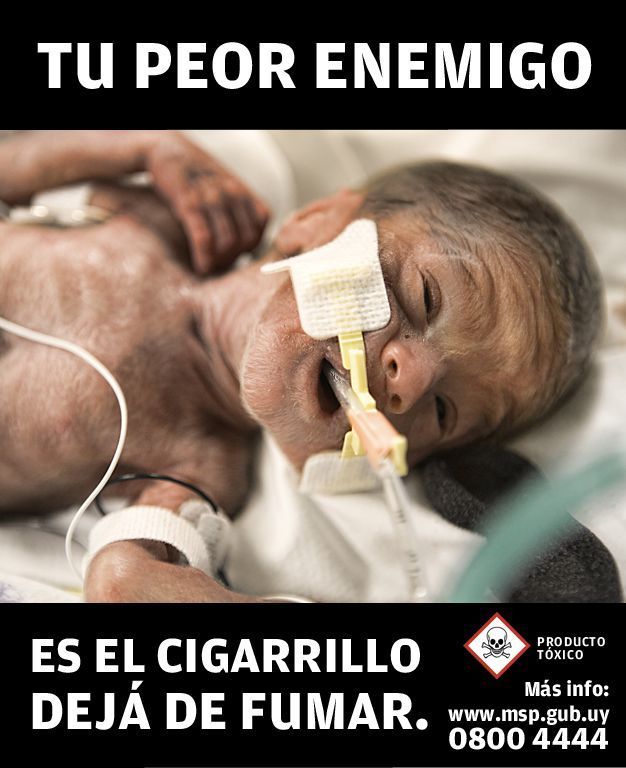 Infant cancer. (Image: MSP, Ministerio de Salud Pública)
Infant cancer. (Image: MSP, Ministerio de Salud Pública)
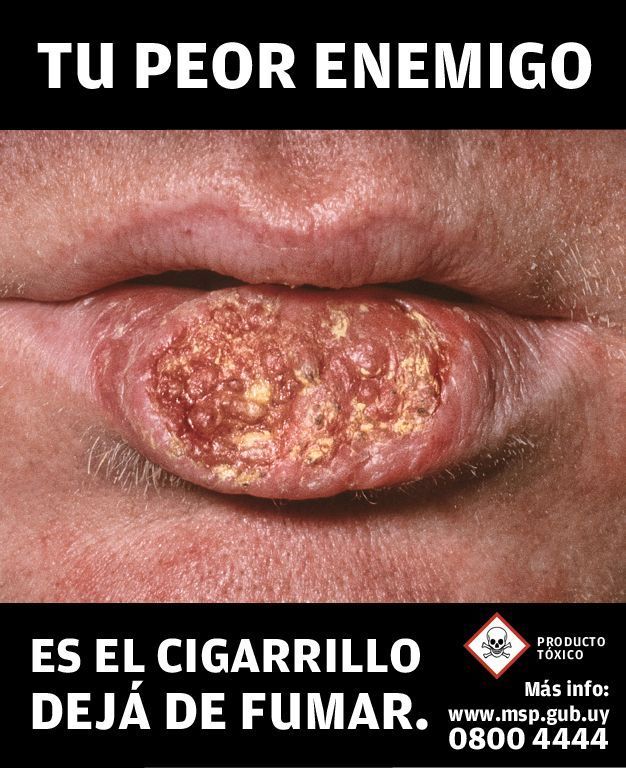 (Image: MSP, Ministerio de Salud Pública)
(Image: MSP, Ministerio de Salud Pública)
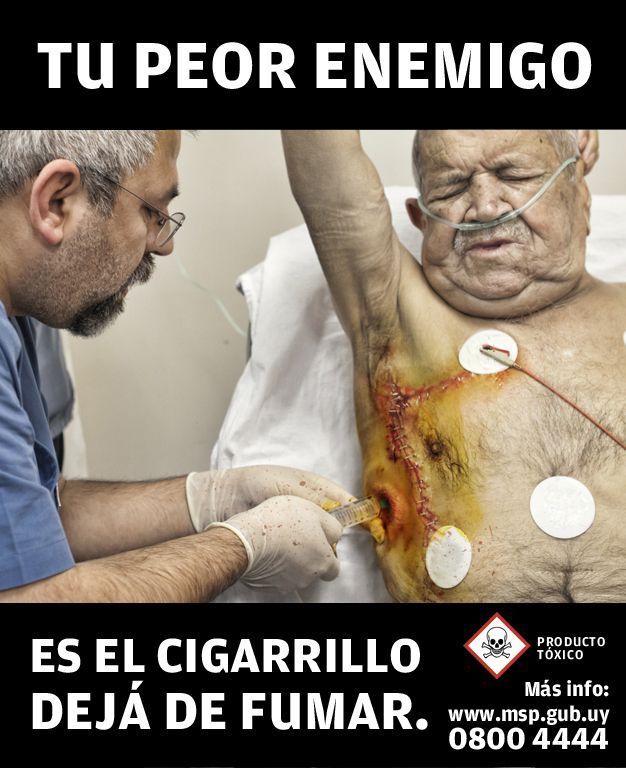 (Image: MSP, Ministerio de Salud Pública)
(Image: MSP, Ministerio de Salud Pública)
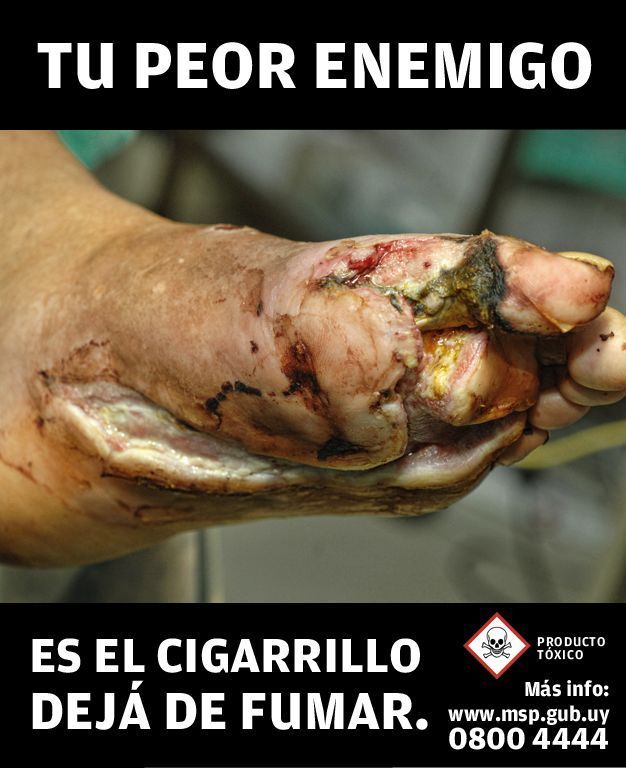 (Image: MSP, Ministerio de Salud Pública)
(Image: MSP, Ministerio de Salud Pública)
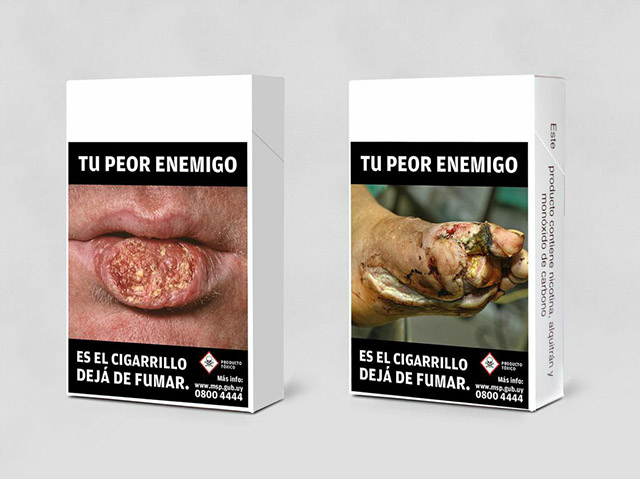 (Image: MSP, Ministerio de Salud Pública)
(Image: MSP, Ministerio de Salud Pública)
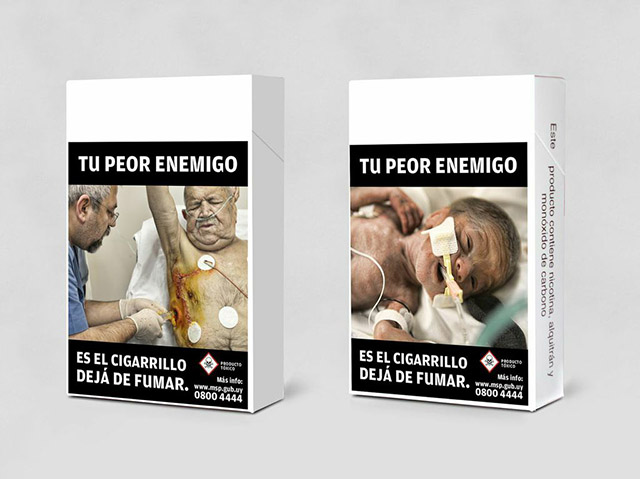 (Image: MSP, Ministerio de Salud Pública)
(Image: MSP, Ministerio de Salud Pública)
For any politician or activist looking for a courageous example of how to fight back against the bullying and intimidation of transnational drug cartels such as Phillip Morris, Uruguay is at the top of the list. Nor is Uruguay likely to back down in the face of the Phillip Morris lawsuit. On March 1, 2015, President Tabaré Vazquéz was sworn in for a second five-year term. Vazquéz is also a Doctor of Oncology who has stated that, “Uruguay is not afraid of Phillip Morris.”
Martín reports from Montevideo that during his new term as president, Vazquéz plans to battle alcohol the same way Uruguay is battling cigarettes. While details of the new alcohol regulation plan have not been published, speculation centers on the probability of an approach similar to tobacco regulation, with emphasis on controlling publicity and raising taxes, with a likely focus on hard liquor. In an official statement on his second-term priorities, President Vázquez issued an official statement that said:
Regarding this last subject [alcohol regulation], we plan to take similar measures, very strong measures, like the ones we developed to battle tobacco”
These assertions of sovereign power to protect public health against the heedless profiteering of multinational corporations offer a heartening example of strong national leadership in an era of corporate and financial globalization. This kind of leadership is needed now more than ever to fight the antidemocratic bias of an encroaching transnational legal and financial system that is set up and run by and for global corporations and banks, not the people.
We have 9 days to raise $50,000 — we’re counting on your support!
For those who care about justice, liberation and even the very survival of our species, we must remember our power to take action.
We won’t pretend it’s the only thing you can or should do, but one small step is to pitch in to support Truthout — as one of the last remaining truly independent, nonprofit, reader-funded news platforms, your gift will help keep the facts flowing freely.
